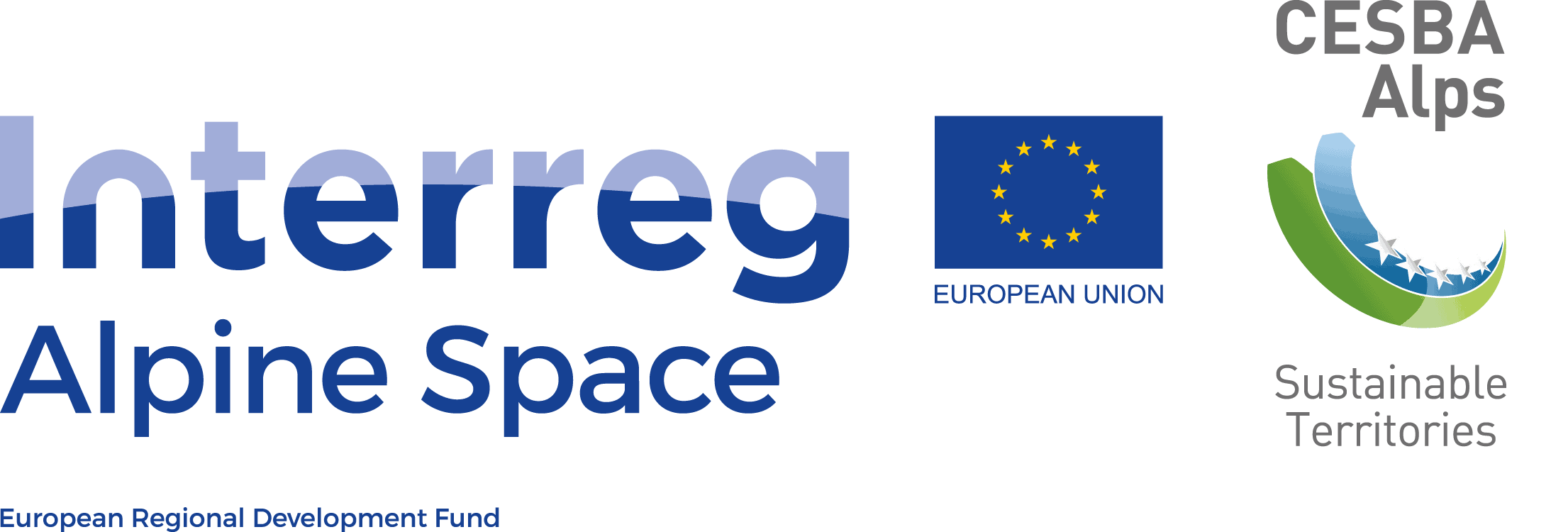
Overview
Sustainable development has to be reflected at local level. At the same time, the local level must be in line with the sustainable objectives defined at national and European level. The CESBA Alps project generated the first tool for sustainable development assessment of territories using a common methodology and a list of 280 indicators, which allow reflecting local standards and degrees in the sustainability field defining for each assessment criterion a territorial performance scale. Moreover, CESBA Alps defined 18 Key Performance Indicators in line with the UN 2030 Agenda and the goals of the EU strategy for the Alpine region (EUSALP) to assess the sustainability territories performance at transnational level.
Factsheet
- 2014 – 2020
- Low carbon
- Establish transnationally integrated low carbon policy instruments
-
- Group 9: To make the territory a model region for energy efficiency and renewable energy
- 12/2015
- 06/2019
- 2.818.739 EUR
- 2.209.778 EUR
Outcomes
-
CESBA Local Commitees
StrategyCESBA Local Committees (CLCs) are at the centre of local/regional works in the CESBA Alps projectCESBA Local Committees (CLCs) support transnational cooperation structures by increasing options for low carbon mobility and transport. To define indicators reflecting local priorities and ensure long term results, partners set up CESBA Local Committees. The members of the CESBA local committees are the important stakeholders for the territory in the sustainability field. They can be, for example, politicians from local and regional authorities or sectorial agencies. -
Guide to the adoption of assessment tools
ToolThe guide is aimed at providing policy makers with a support tool for the concrete application of the sustainability assessment methodology developed within the CESBA Alps initiative.The guide supports Policy makers in the identification of sustainable development objectives for the main sectors and in the participation of specific policies also proposing alternative Solutions that promote sustainable development. It also supports in monitoring and evaluation of the policies in progress. -
CESBA Alps Training System
ToolThe CESBA Alps Training System represents a key component of the project as it is crucial to ensure a correct use of the CESBA Alps tools and methodology.The CESBA Alps Training Framework is aimed to promote the use of the CESBA Alps methodology and tools to improve decision makers skills and strengthen the capacity of local stakeholders to foster innovative regulations, policies and territorial strategies towards sustainable alpine territories. -
CESBA STT - the first tool for the sustainability assessment of territories
ToolThe CESBA STT online-tool has been designed for assessing the sustainable development performance of territories. Based on 280 indicators it can be contextualized at local level and used for setting a scoring/rating system. -
CESBA Passport
ToolThe CESBA Passport is like a “sustainability-ID” of a region/territory. It is a document that contains the CESBA KPIs (Key Performance Indicators) and some specific indicators that are intrinsically relevant for the region. -
CESBA STT Generic Framework
ToolCESBA Sustainable Territories Generic Framework is a tool useful to measure the level of sustainability of a territory. It is a generic multicriteria assessment tool that may be used by third parties to develop rating systems at territorial scale fully contextualized to local conditions.




